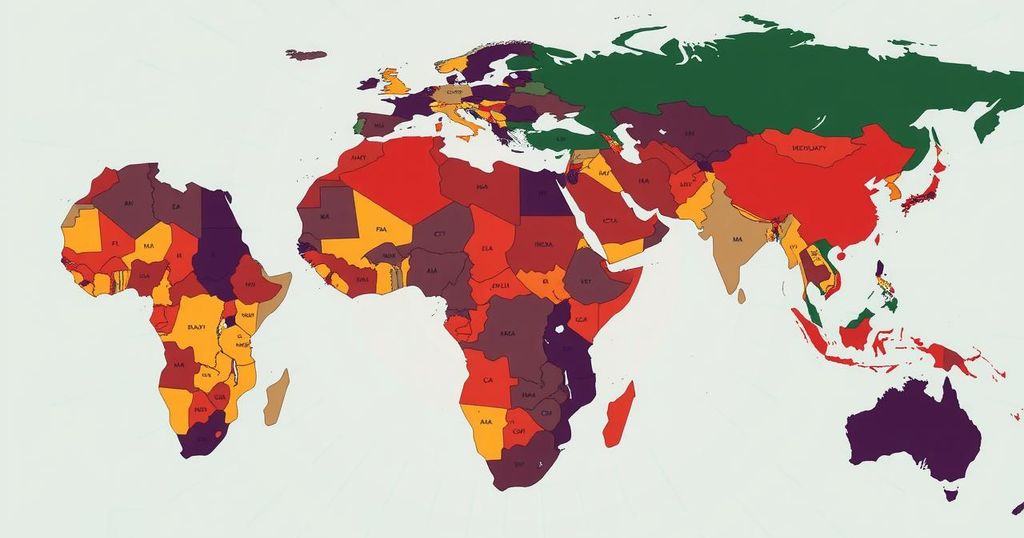2024 African Elections: Outcomes of Ruling Parties and Emerging Leaders

In 2024, various African nations held elections, with mixed outcomes for ruling parties. The incumbent President of Comoros faced protests after his victory, while Mozambique’s Frelimo party retained power amidst unrest. Historical changes occurred in Namibia and Botswana, with South Africa’s ANC losing its majority. Significant elections in West Africa saw former President Mahama reclaim his position in Ghana and Senegal elect the continent’s youngest president. Meanwhile, the Sahel region experienced election delays due to military dominance.
In 2024, numerous African nations held pivotal elections that showcased a mixture of electoral successes and defeats for ruling parties. Comoros witnessed the return to power of incumbent President Azali Assoumani amid widespread violence following the elections. The Frelimo party in Mozambique continued its dominance, leading to protests despite predictions of a close race. Namibia made history by electing its first female president, while Botswana’s elections marked the end of nearly six decades of one-party rule, ushering in a new opposition leader. In South Africa, the long-standing ANC failed to secure a majority for the first time since 1994, necessitating a coalition government. Meanwhile, Rwandan President Paul Kagame secured an overwhelming victory, raising questions about the legitimacy of such support. West Africa saw significant political shifts, with John Mahama reclaiming the presidency in Ghana amid economic turmoil and Bassirou Diomaye Faye becoming Senegal’s youngest president, promising reform. However, the Sahel region faced postponements of elections in several countries, a troubling indicator of military regimes entrenching their power.
The elections in Africa during 2024 unfolded against a backdrop of historical trends in governance, political stability, and civil unrest. Many of the ruling parties faced intense opposition and scrutiny from the electorate, alongside persistent challenges such as economic difficulty, public dissatisfaction, and allegations of electoral fraud. This transitional period highlights the struggle between democratic ideals and authoritarian tendencies, particularly in regions like the Sahel where military coups have derailed democratic progress.
The 2024 African elections reflected a complex political landscape, revealing both resilience and fragility within democratic processes across the continent. While some incumbents managed to retain power, many faced significant challenges that may reshape the political fabric of their nations. This series of elections not only marks a potential shift in governance in several countries but also emphasizes the need for continued vigilance regarding democratic practices and human rights in Africa.
Original Source: www.voanews.com







